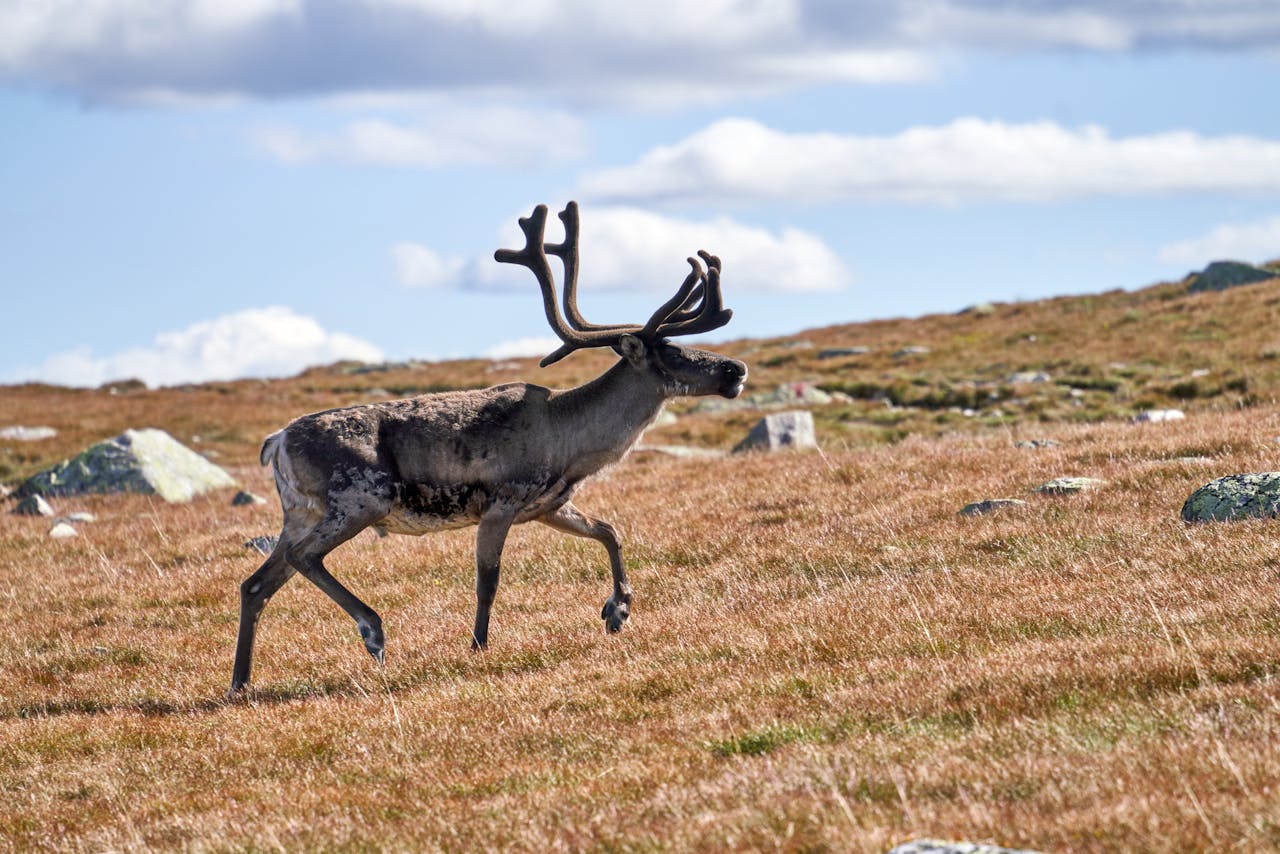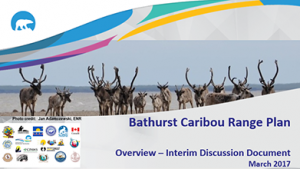
Project Description
Bathurst Caribou Range Plan – Range planning to reduce disturbance to caribou
The Bathurst herd is a population of migratory barren-ground caribou whose range extends across Nunavut, the eastern NWT and northern Saskatchewan. Over the last 30 years, the population has declined from a historic peak of over 450,000 to an estimated 20,000 in 2016. In response to concerns about the cumulative effects of mineral development and other land use activities on the Bathurst range, the Government of NWT initiated a range planning exercise to provide guidance on ways to manage and reduce disturbance to caribou and caribou habitat.
Compass is leading an interdisciplinary team of professionals in the development of theRange Plan. The multi-stakeholder planning process involves representatives from Aboriginal governments and organizations, industry, federal and territorial governments, and non-governmental organizations. Our role involves integrating traditional, local and scientific knowledge, developing a GIS database, defining future development scenarios, modeling the potential response of caribou to these scenarios, and facilitating frank conversations about the socio-cultural, environmental and economic implications of various range-scale management actions. It also involves the identification and evaluation of a range of policy and legal instruments for implementation. The Interim Discussion Documents describe a system of tiered disturbance thresholds and associated management actions and are currently out for public review and comment.
Related Projects: Species at Risk, Fish and Wildlife, Climate, Forests and Lands, Cumulative Effects, The North, Transboundary Negotiations, Indigenous Groups, Structured Decision Making, Public Policy, Stakeholder Facilitation, Technical Working Groups
Project Details
- ClientGovernment of Northwest Territories



